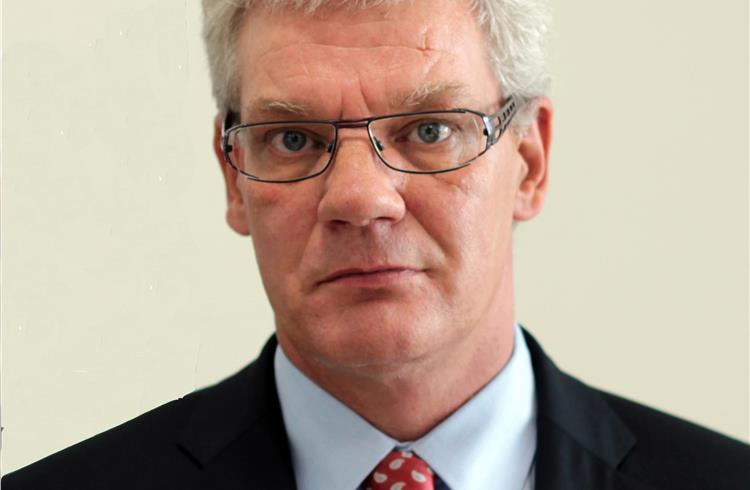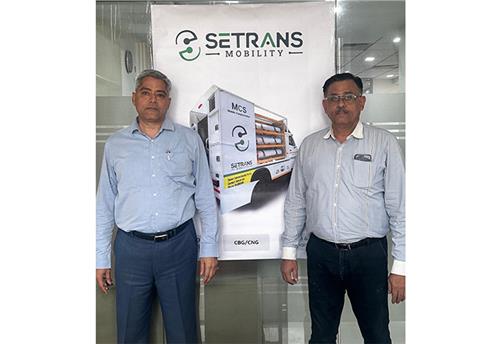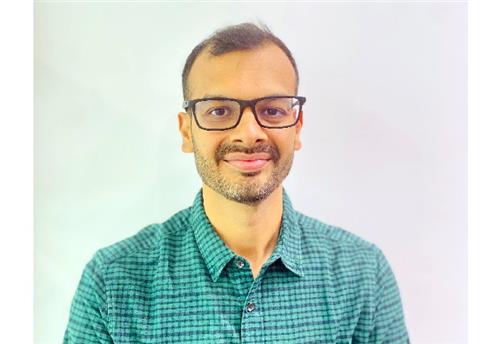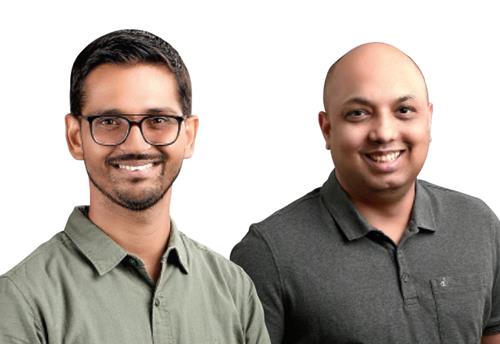‘Many VW India vendors are now supplying to our global plants.’
Hans-Georg Festing, executive director – corporate purchase, VW, on localising its first engine, global business prospects of Indian suppliers, and increasing localisation levels.
Hans-Georg Festing, executive director – corporate purchase, Volkswagen India, on how the Indian subsidiary of the German carmaker localised its first engine, global business prospects of local suppliers, and adding more engines and gearboxes to its portfolio of locally assembled kits soon. An email interview by Amit Panday.
Of the yearly engine assembly capacity (1.5 TDI diesel), how many are being currently assembled and of that, how many are exported? Can you provide details about the domestic versus export requirements of the 1.5-litre diesel powerplant?
The 1.5-litre TDI engine has been specifically designed for the Indian market. This was necessary due to the tax structure in India which demands benefits for diesel engines up to 1500cc.
Since this engine was not available anywhere else in the Volkswagen world, it was specifically developed for India and is not being exported to any other market as there is no specific demand for this cubic capacity as of now. Currently, this engine is powering all three cars being manufactured at the Volkswagen Pune Plant — Volkswagen Polo, Volkswagen Vento and Skoda Rapid — and is available in two power outputs (90 PS and 105 PS).
How do the local assembly operations of the 1.5-litre diesel engine contribute to overall operational productivity at the Chakan plant?
The 1.5-litre TDI engine contributes to over 40 percent of the total cars produced at the Volkswagen Pune Plant for the domestic market.
With local assembly of this engine, the necessity to import those many engines from Europe has reduced, thus improving the overall cost structure as imported engines attract higher costs.
Given that these vendors match the quality check and other strict processes of Volkswagen, do they stand a chance to supply their components to other Volkswagen plants around the world?
Definitely yes. In fact, there are several suppliers of Volkswagen India which have been first-time suppliers to the Volkswagen world and after being developed here are now supplying to our global plants, not only of the Volkswagen brand but also other brands of the Volkswagen Group. While this is true in case of a lot of suppliers for other parts of the car, it is also true for some engine parts. For example, the crankshaft from Bharat Forge is being exported by the supplier to the Volkswagen plant in Polkowice, Poland and to the Audi plant in Gyar, Hungary.
How did officials at Volkswagen finalise crucial engine components for local procurement and how were their respective suppliers finally selected?
In a Volkswagen car, you would find parts and components of the same quality and specification anywhere in the world, irrespective of where it is manufactured.
To maintain this, Volkswagen has defined certain standard specifications as a part of its global operations. All the suppliers are required to comply with these with cost competitiveness to partner with Volkswagen, be it in any country/market.
The same rule applies in India as well. In case a supplier is not able to comply with these standards, Volkswagen does not compromise and prefers to import that specific part.
What are the key factors that Volkswagen looks for before appointing a vendor? Is this practice common across other facilities too?
Volkswagen, around the world, always prefers quality and process-oriented, reliable, committed and sustainable suppliers. This is the standard of Volkswagen worldwide and India is no exception to this.
Given that the government is extending support to local manufacturing, thanks to the make-in-India drive, will VW India start local assembly operations of the petrol engines and the gearboxes soon? Also, the upcoming sub-four-metre sedan project is expected to provide a good platform to the company to do so in the near future. What are your plans going forward?
After localising the 1.5-litre TDI engine, the next logical step would be to add more engines to the portfolio and eventually assembling gearboxes too. However, these are long-term plans and there is neither any decision on the specifics of these nor on their timelines.
For now though, we have to increase the localisation on the existing 1.5-litre TDI engine before taking next big steps. As far as the compact sedan is considered, we have it in planning and as announced recently by Mr Michael Mayer, director – Volkswagen Passenger Cars India, it is a car that we will roll out in the near future and will have similar powertrain options as being offered on the existing models.
(This interview was published in Autocar Professional's June 1, 2015 issue)
RELATED ARTICLES
Setrans Mobility Booster Charging top-up 25% EV range in 15 minutes
Two enterprising tech-savvy entrepreneurs Rana Roshan Singh and Vivek Ummat of Noida, Uttar Pradesh-based start-up Setra...
'Our products are proudly 100% designed and made in India'
Creatara Mobility, a New Delhi based electric two-wheeler startup, claims to have tackled various challenges in making i...
'EVs have been around for a much smaller time than ICE, so best practices are still evolving'
EV OEMs and start-ups are under pressure to reduce production costs and bring them close to ICE counterparts. Vaibhav Ku...





 By Autocar Pro News Desk
By Autocar Pro News Desk
 29 Jun 2015
29 Jun 2015
 13220 Views
13220 Views









